
Drum and bass is a genre of electronic dance music characterised by fast breakbeats with heavy bass and sub-bass lines, samples, and synthesizers. The genre grew out of the UK's jungle scene in the 1990s.
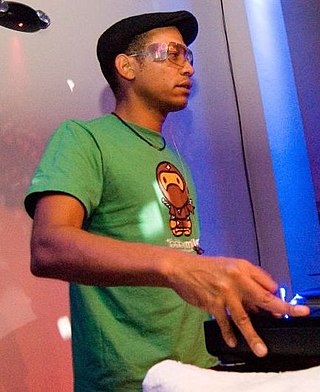
Daniel Andrew Williamson, better known as LTJ Bukem, is a British drum and bass musician, producer and DJ. He and his record label Good Looking are most associated with the jazzy, atmospheric side of drum and bass music.
Electronica is both a broad group of electronic-based music styles intended for listening rather than strictly for dancing and a music scene that came to prominence in the early 1990s in the United Kingdom. In the United States, the term is mostly used to refer to electronic music generally.
Jungle is a genre of electronic music that developed out of the UK rave scene and roots reggae and dancehall sound system culture in the 1990s. Emerging from breakbeat hardcore, the style is characterised by rapid breakbeats, heavily syncopated percussive loops, samples, and synthesised effects, combined with the deep basslines, melodies, and vocal samples found in dub, reggae and dancehall, as well as hip hop and funk. Many producers frequently sampled the "Amen break" or other breakbeats from funk and jazz recordings. Jungle was a direct precursor to the drum and bass genre which emerged in the mid-1990s.

Richard D. James Album is an eponymous studio album by the electronic music artist and producer Aphex Twin. It was released on 4 November 1996 through Warp Records. It was composed by James on his Macintosh computer, and took longer to complete than his previous albums. It features fast breakbeats and intricate drum programming which draw from jungle and drum and bass. James' drum loops are paired with lush string arrangements, intricate time signatures, and ambient melodies reminiscent of his earlier work, as well as modulated vocals from James.
Downtempo is a broad label for electronic music that features an atmospheric sound and slower beats than would typically be found in dance music. Closely related to ambient music but with greater emphasis on rhythm, the style may be played in relaxation clubs or as "warm-up or cool-down" music during a DJ set. Examples of downtempo subgenres include trip hop, ambient house, chillwave, psybient and lofi hip hop.
Jonah Sharp is a producer, remixer, and DJ of electronic music. Sharp was born in Edinburgh. After starting his musical career as a jazz drummer in London, U.K., he moved to San Francisco, U.S. During the 1990s Sharp released a series of albums on the Astralwerks record label. The first of these, entitled Alien Dreamtime, featured a live recording of ethnobotanist, writer and psychedelic researcher Terence McKenna delivering a series of lectures to the accompaniment of Spacetime Continuum music. Sharp's subsequent albums combined experimental electronic music with subtle jazz elements and elaborate rhythm structures. His work has had a clear influence on contemporary psybient artists, such as Shpongle and others.
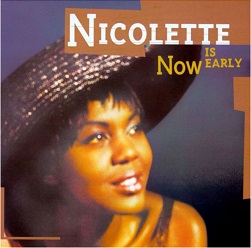
Now Is Early is the debut studio album by Scottish singer Nicolette, produced by English electronic duo Shut Up and Dance and released in April 1992 by the duo's label of the same name. It follows a string of popular underground singles in the early 1990s that applied the singer's jazz-styled vocals to Shut Up and Dance's early experiments in breakbeat hardcore, with songs from these singles featuring on the record. Stylistically, the record profiles Shut Up and Dance's spacious, breakbeat-driven sound, contrasted with Nicolette's smooth scat-style singing. For the album, the singer wrote torch songs in a stream of consciousness style and explored universal themes.
Drum and bass is an electronic music genre that originated in the UK rave scene having developed from breakbeat hardcore. The genre would go on to become one of the most popular genres of electronic dance music, becoming international and spawning multiple different derivatives and subgenres.
Chris Douglas, known primarily for his work as O.S.T., is an electronic musician from San Francisco, California. He is noted for helping to develop the style of music that came to be known as intelligent dance music (IDM).

Ginger is the debut studio album by Dutch electronic music producer Speedy J. Released via a joint deal between Plus 8 and Warp in September 1993, the album was the sixth release in Warp's Artificial Intelligence series, which focused on "electronic listening music" by different artists. It peaked at number 68 on the UK Albums Chart and remains Speedy J's most successful album there.
Gas is the main musical project of German electronic musician and composer Wolfgang Voigt. The project was created as an expressive medium inspired by his experiences with taking LSD in the Königsforst, a German forest situated near his hometown of Cologne, for long periods in his youth. He has claimed that the intention of the project is to "bring the forest to the disco, or vice-versa".
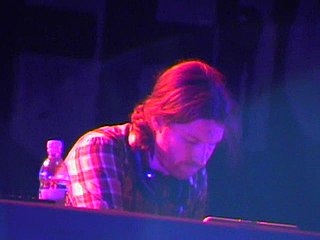
Richard David James, known professionally as Aphex Twin, is a British musician, composer and DJ. He is known for his idiosyncratic work in electronic styles such as techno, ambient, and jungle. Journalists from publications including Mixmag, The New York Times, NME, Fact,Clash and The Guardian have called James one of the most influential and important artists in contemporary electronic music.
Boymerang was the drum and bass project of the English post-rock musician Graham Sutton.

Mark Pritchard is an English electronic musician, currently signed to Warp. He has produced a large discography with a constant change of styles and genres, in both solo work under various aliases, and collaborations.

Modulations: A History of Electronic Music: Throbbing Words on Sound is a 2000 book edited by Peter Shapiro. It is a companion piece to the documentary film Modulations: Cinema for the Ear.
"All Neon Like" is a song by Icelandic musician Björk. The song was written by Björk and produced by the singer and British producer Mark Bell for Björk's album Homogenic (1997).
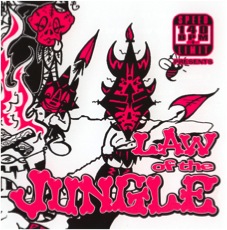
Law of the Jungle is a compilation album of various early jungle music tracks by various artists, released in 1994 in the United States on Moonshine Music. Jungle had started to emerge in the United Kingdom a couple of years earlier but despite its growth, albeit slow, in the United States, no jungle albums were available on the American market. Moonshine conceived the album as a primer for jungle music for American shores, using music from British jungle label SOUR Records, and as a spin-off to their fast tempo techno compilation series Speed Limit 140 BPM+. Law of the Jungle was the first jungle album released in the United States.

"Feel the Sunshine" is a song by British drum and bass producer Alex Reece featuring vocals by singer Deborah Anderson, who also co-wrote the lyrics. It received critical acclaim and was included on Reece's debut album, So Far, which was released in September 1996. The song was released in December 1995 as a single by Blunted and Island Records, peaking at number 69 on the UK Singles Chart. A re-release in May 1996 containing remixes charted higher, peaking at number 26. On the UK Dance Singles Chart, "Feel the Sunshine" was more successful, peaking at number two (1995) and four (1996). It is now widely regarded as one of the most classic drum and bass songs.
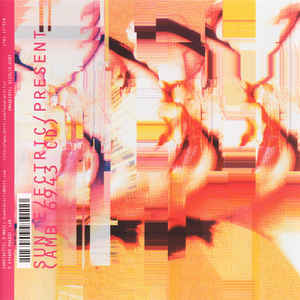
Present is the third album by German techno duo Sun Electric, released in November 1996 by Belgian label Apollo Records. The duo's first full-length studio album for the label, the album is a return to Sun Electric's more beat-oriented material and incorporates styles of dub, jungle, IDM, breakbeat and downtempo. The album artwork by The Designer's Republic features a manipulated image similar to artworks of Madonna, reflecting the melancholic, fractured sound of the album. Music critics greeted Present favourably, praising its inventive style, and some have since recognised the record as overlooked.











